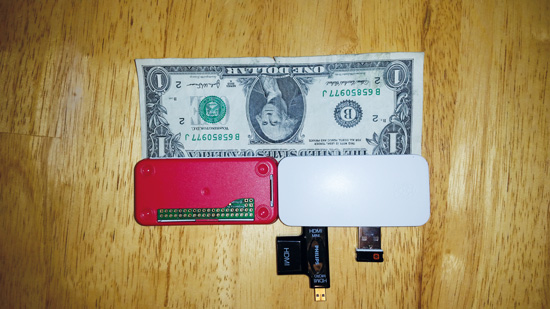Scott Edenbaum, a recent graduate from the NYC Data Science Academy, has turned a humble Pi Zero into DataSciencePi: a data crunching, code trialling, data science-ing auxiliary processor.
Wanting to avoid “the potential for security exploits” of installing MySQL on his main development computer, Scott instead used virtualisation software Docker to create standard environments for Python and R (a programming language suited to data science).
Scott’s approach avoids the “multiple (possibly conflicting) dependencies” of Python and R, while allowing him to create his sandbox coding and testing environment quickly and easily. Building the environment from scratch each time is “a process that takes 2+ hours on a Raspberry Pi 3”, let alone a modest Pi Zero.
DataSciencePi: A plug-in processor made from a Raspberry Pi

“Because the device is so inexpensive, I can see there being a lot of possibility using it for education” Scott tells us, while the standardised environment saves “headaches” such as installing libraries and managing package repositories.
Scott’s project could replace Excel “for some tasks”, while Docker “allows deployment and management of a few devices or hundred, without too much extra work.” He says there are “a lot of interesting cases I haven’t thought of.”
The project is on GitHub, and Scott has documented the installation process.








